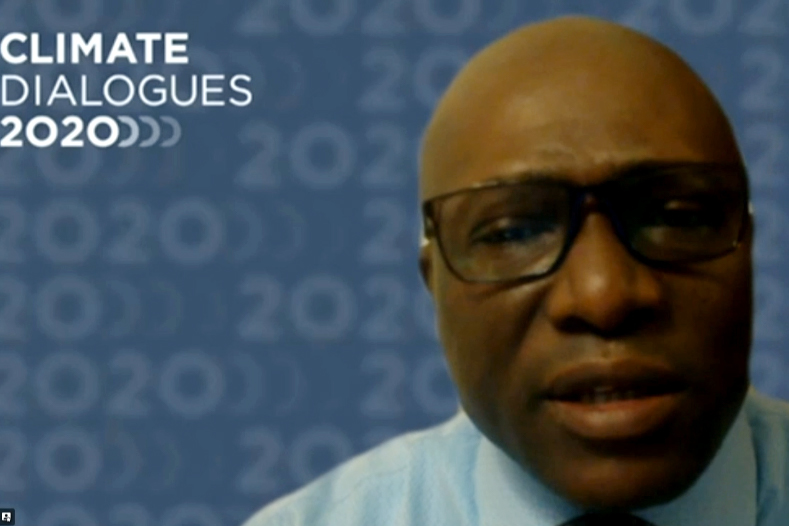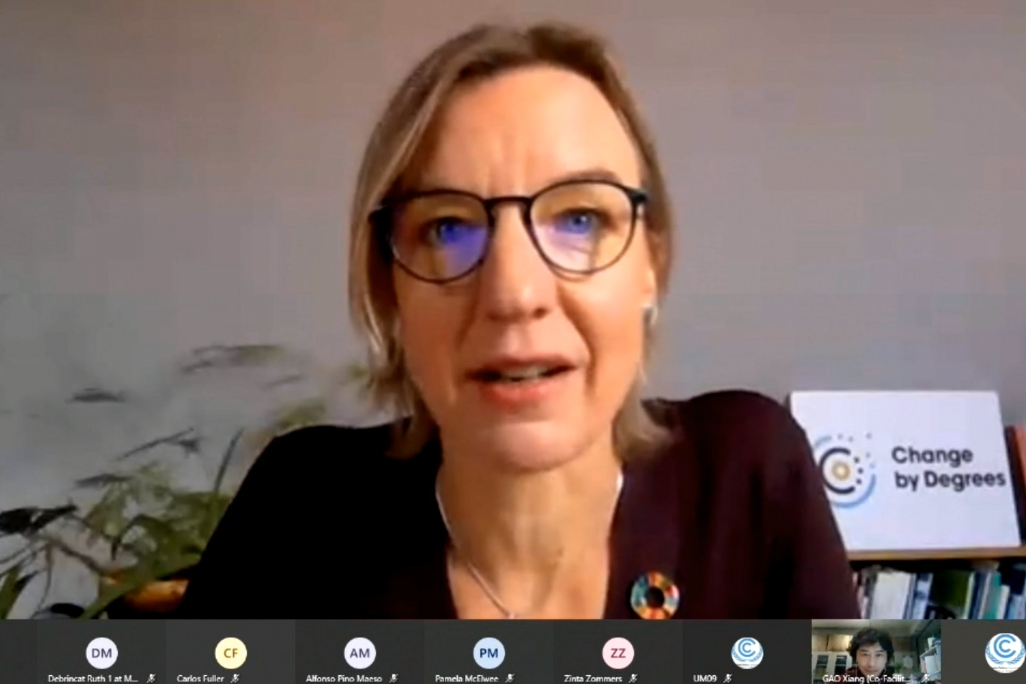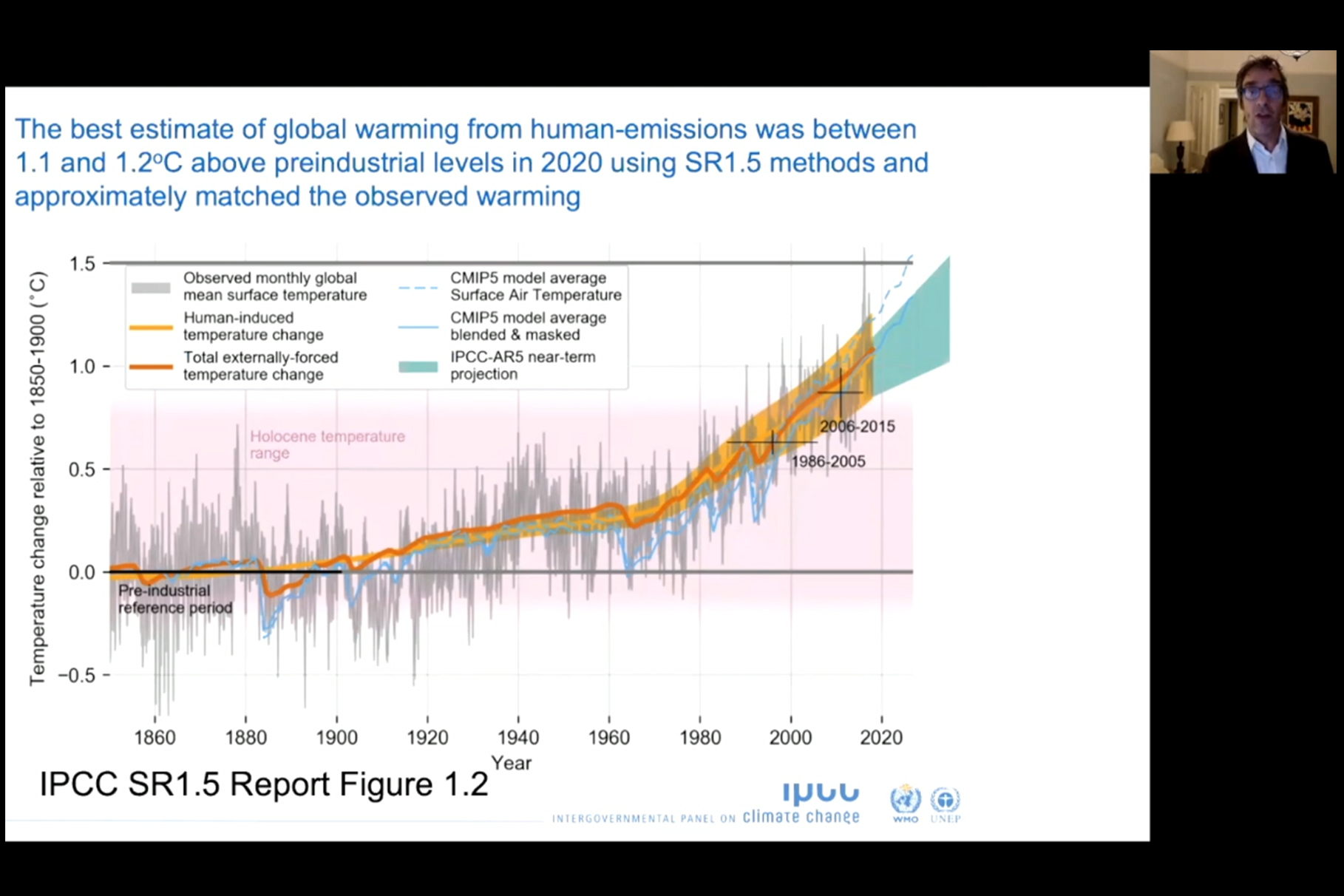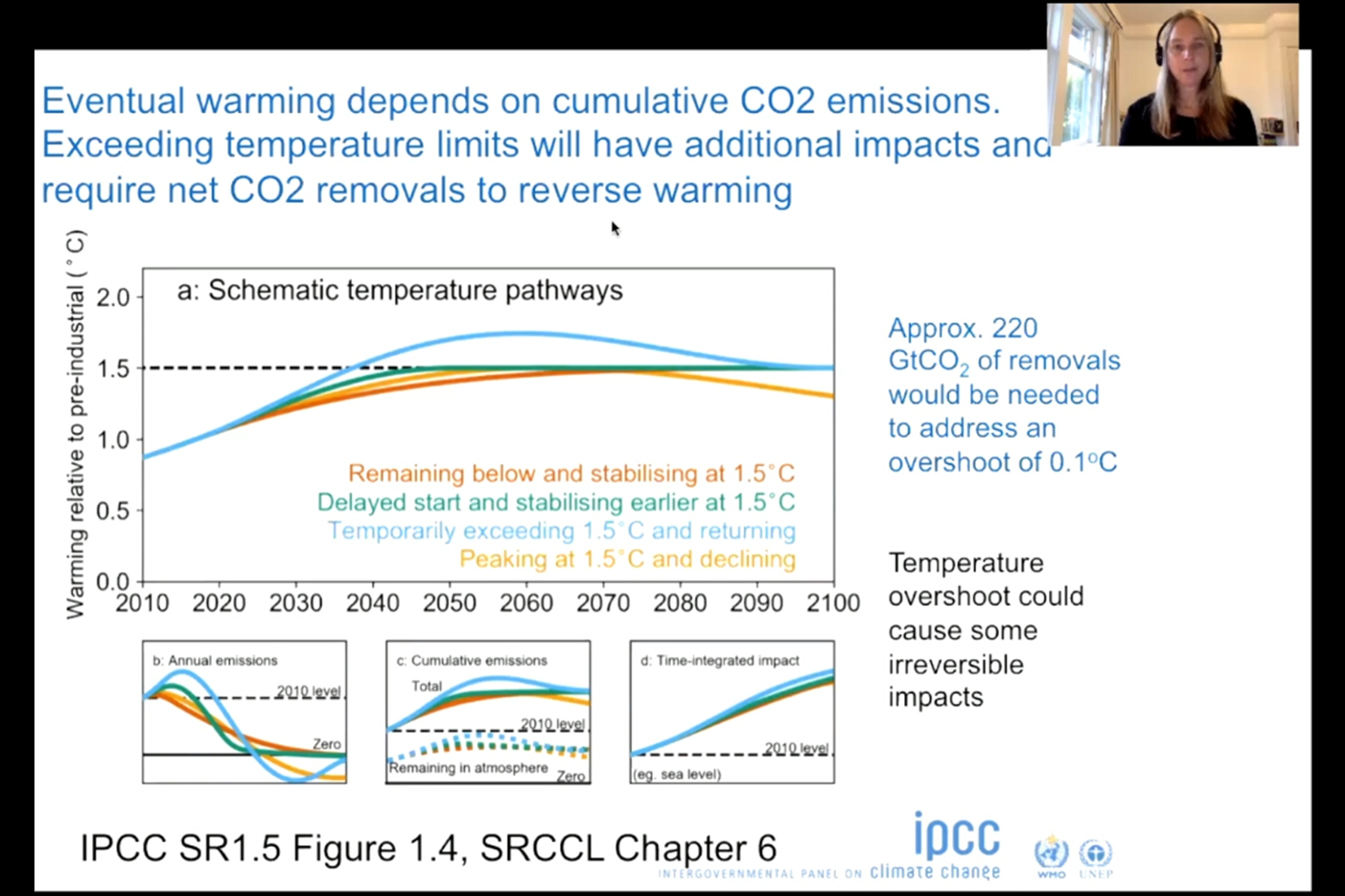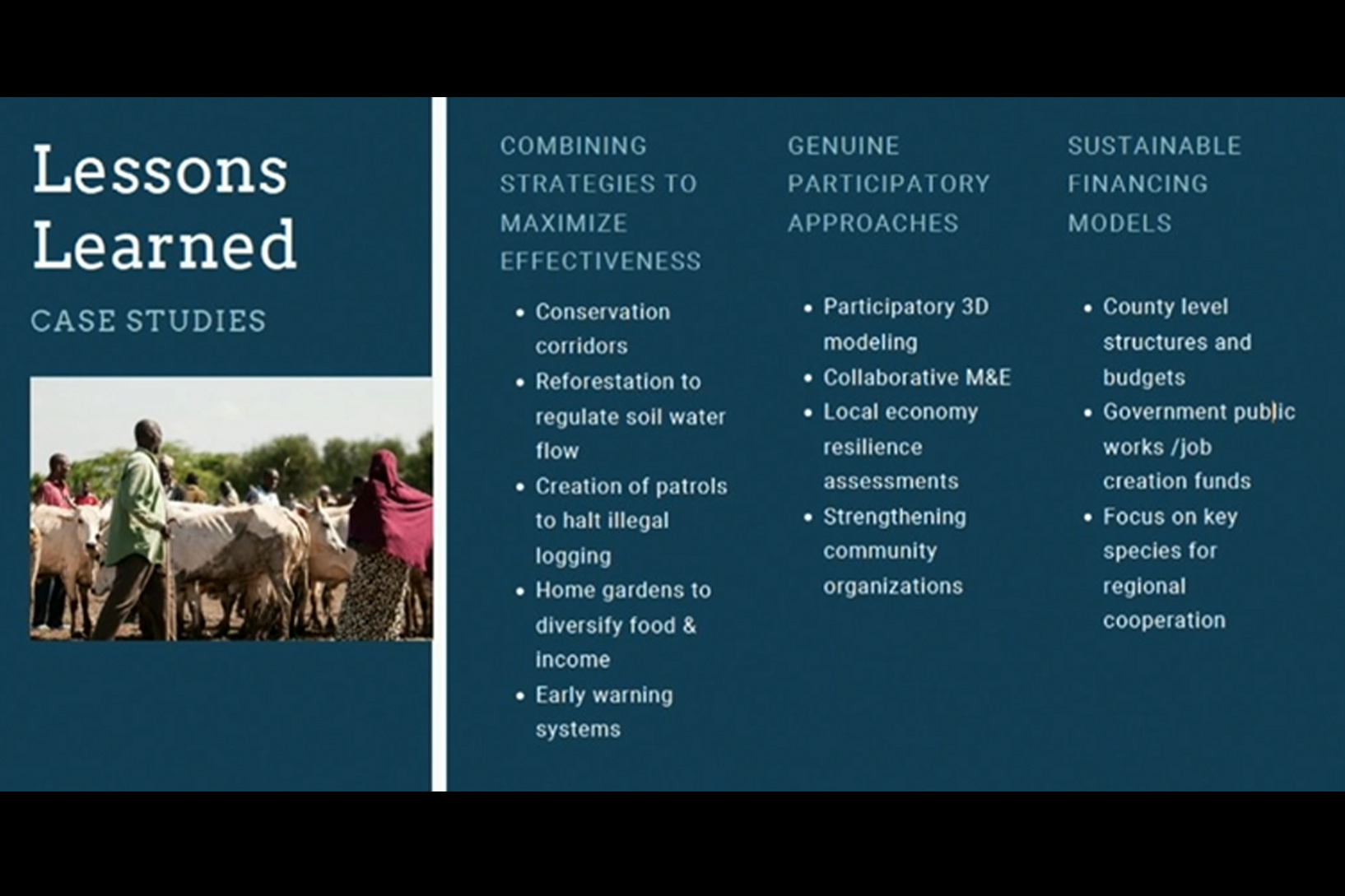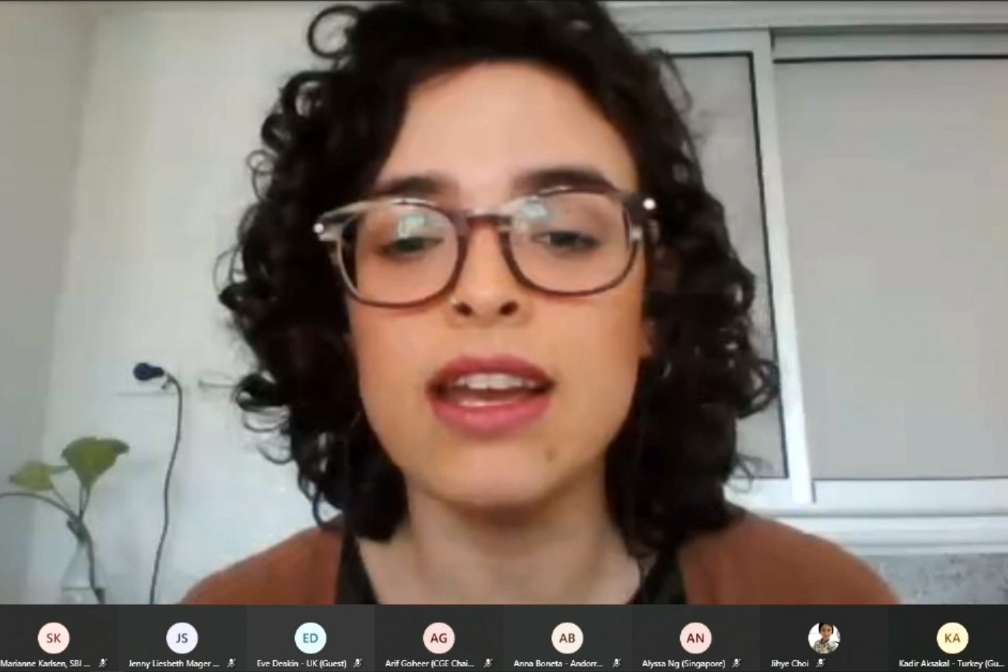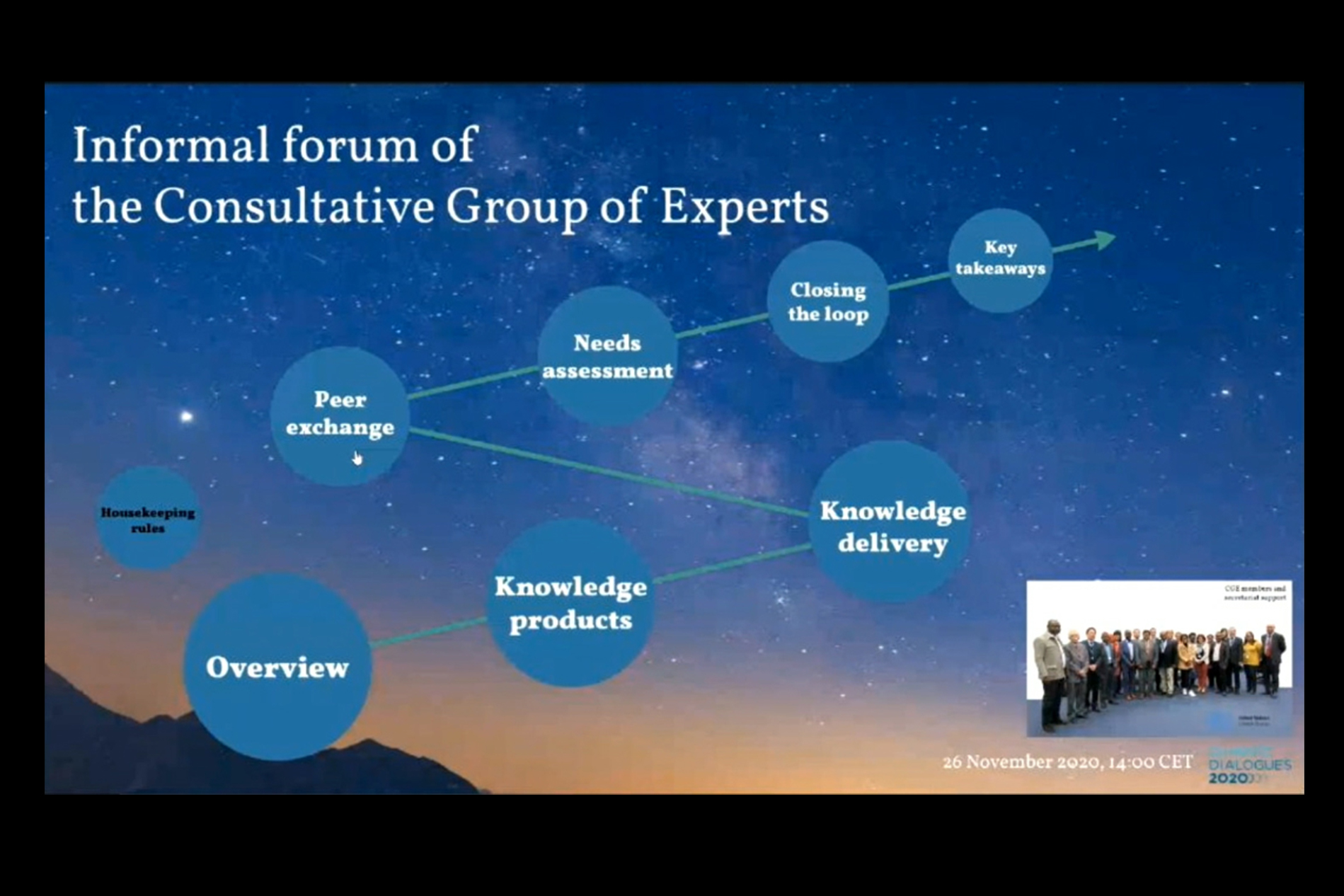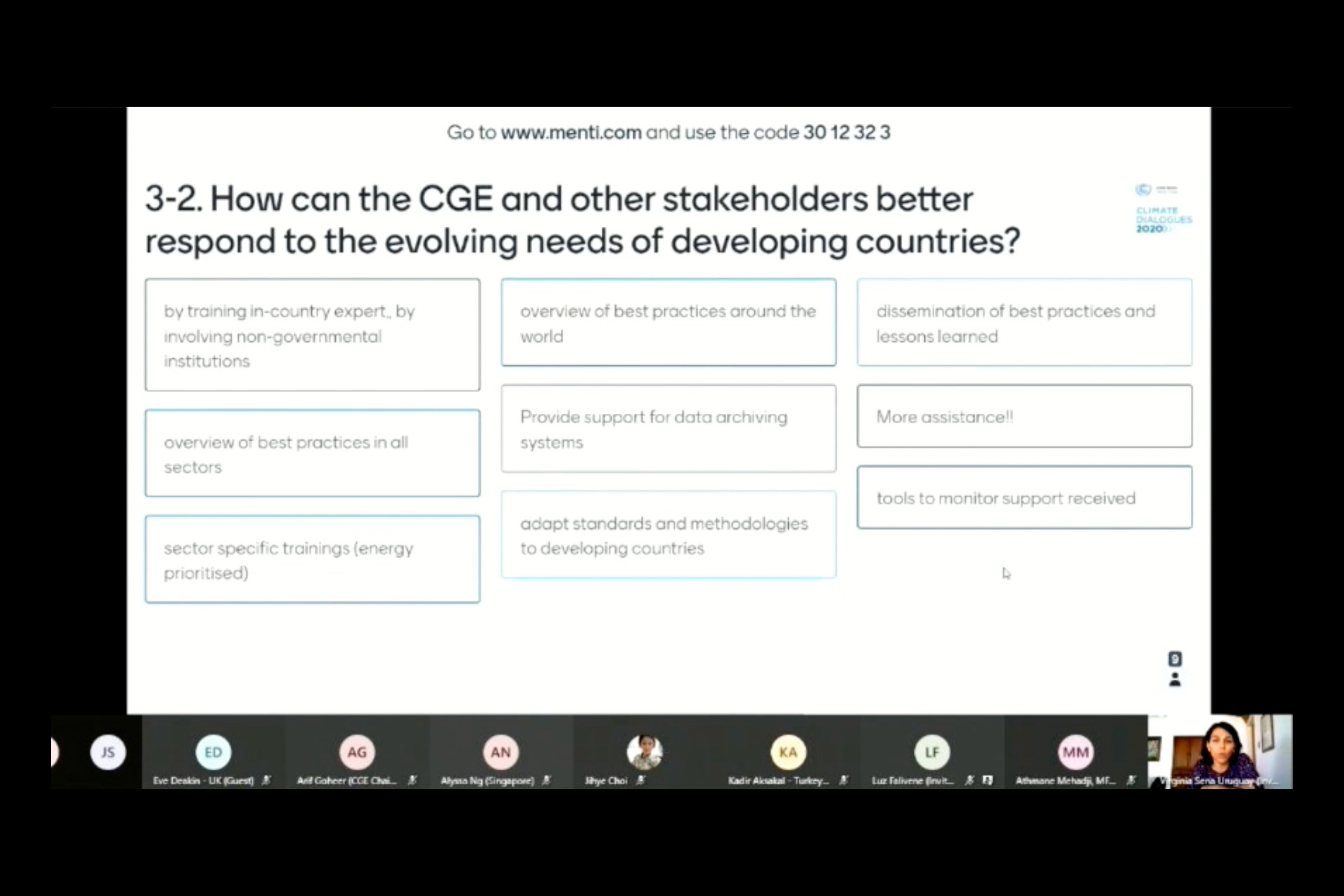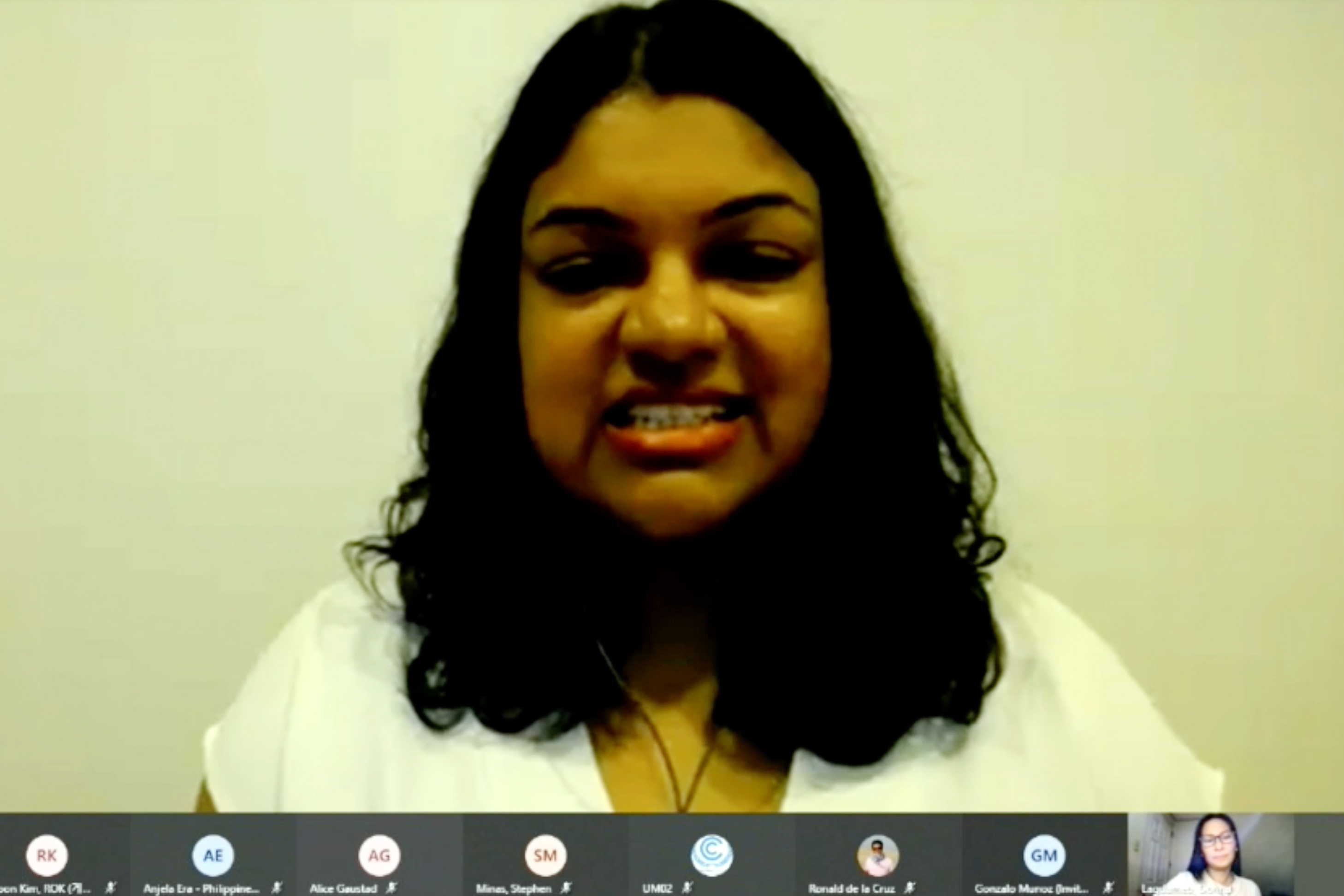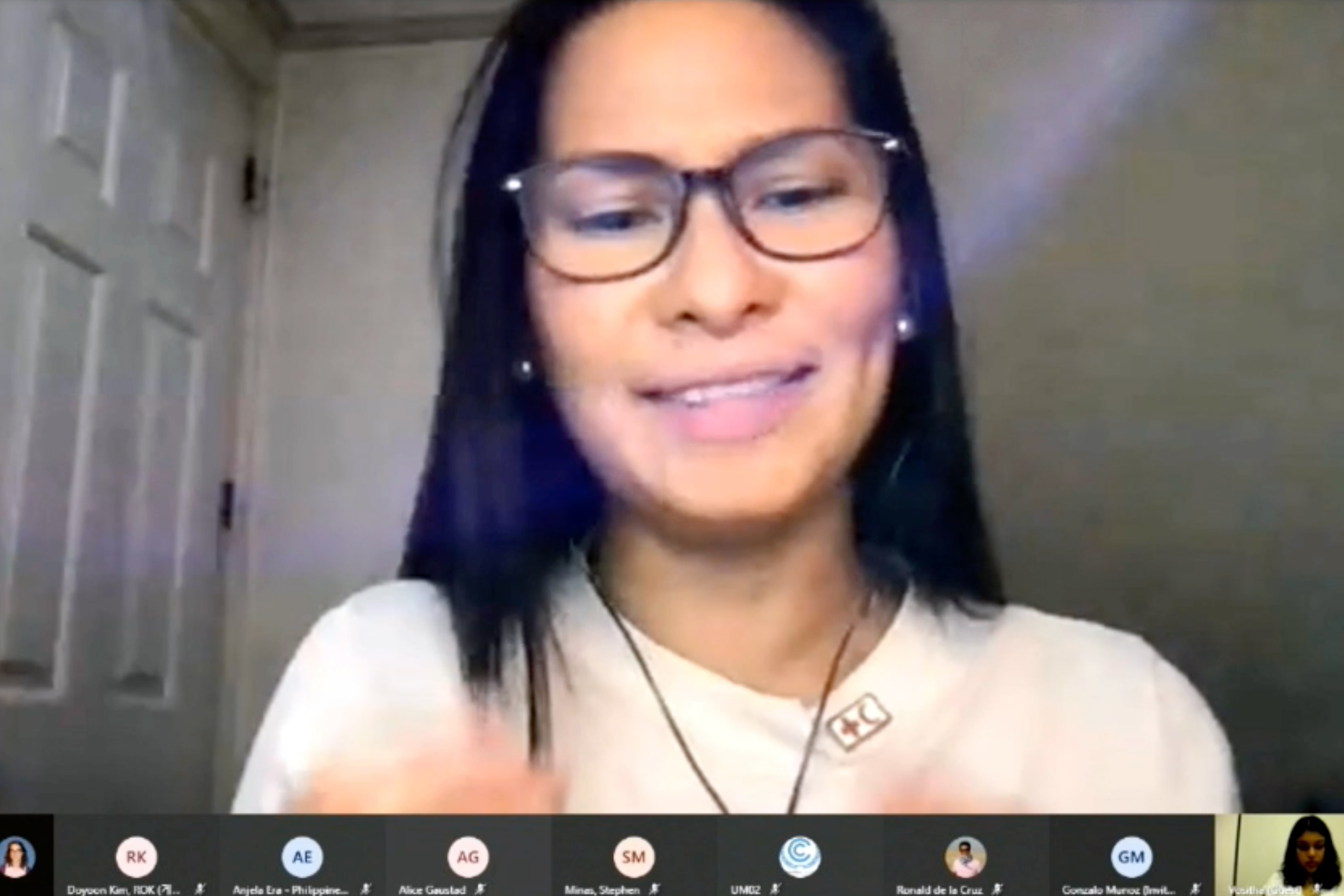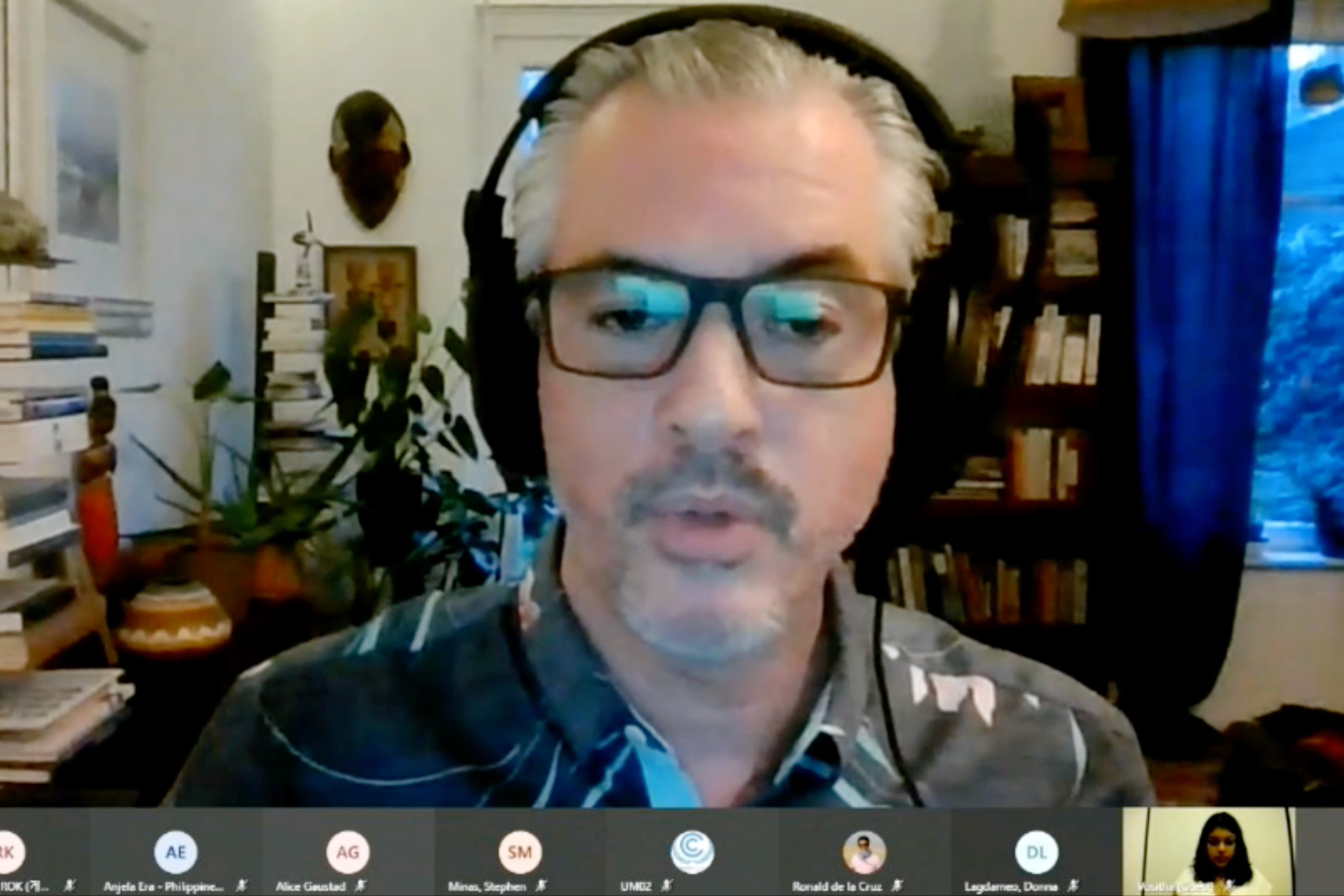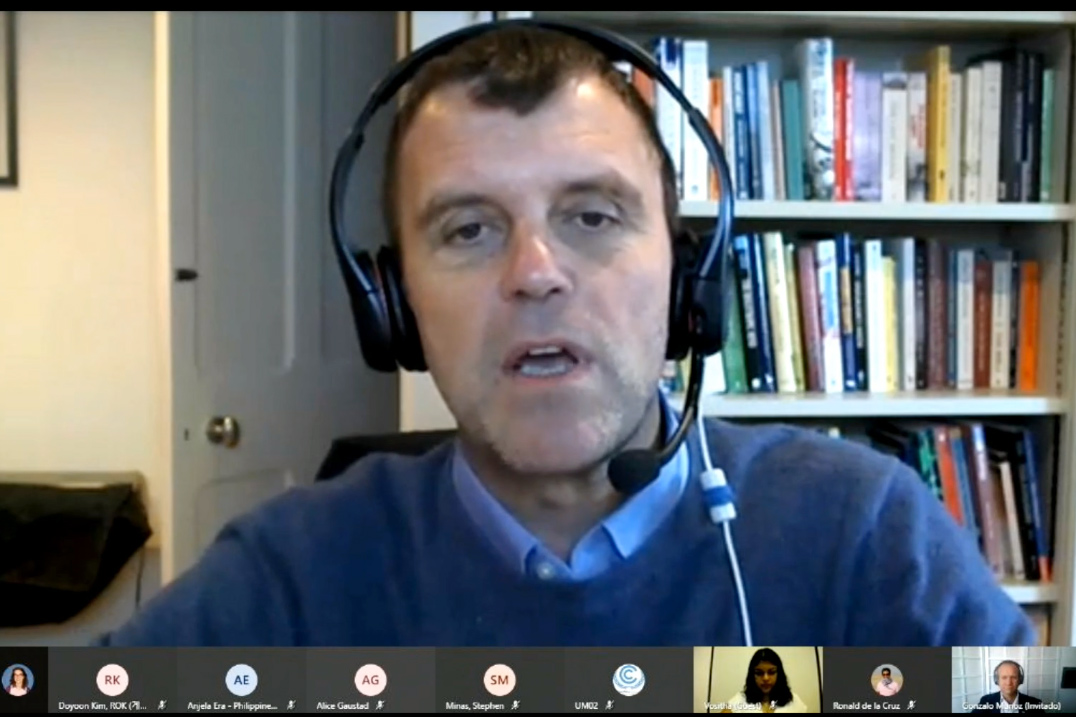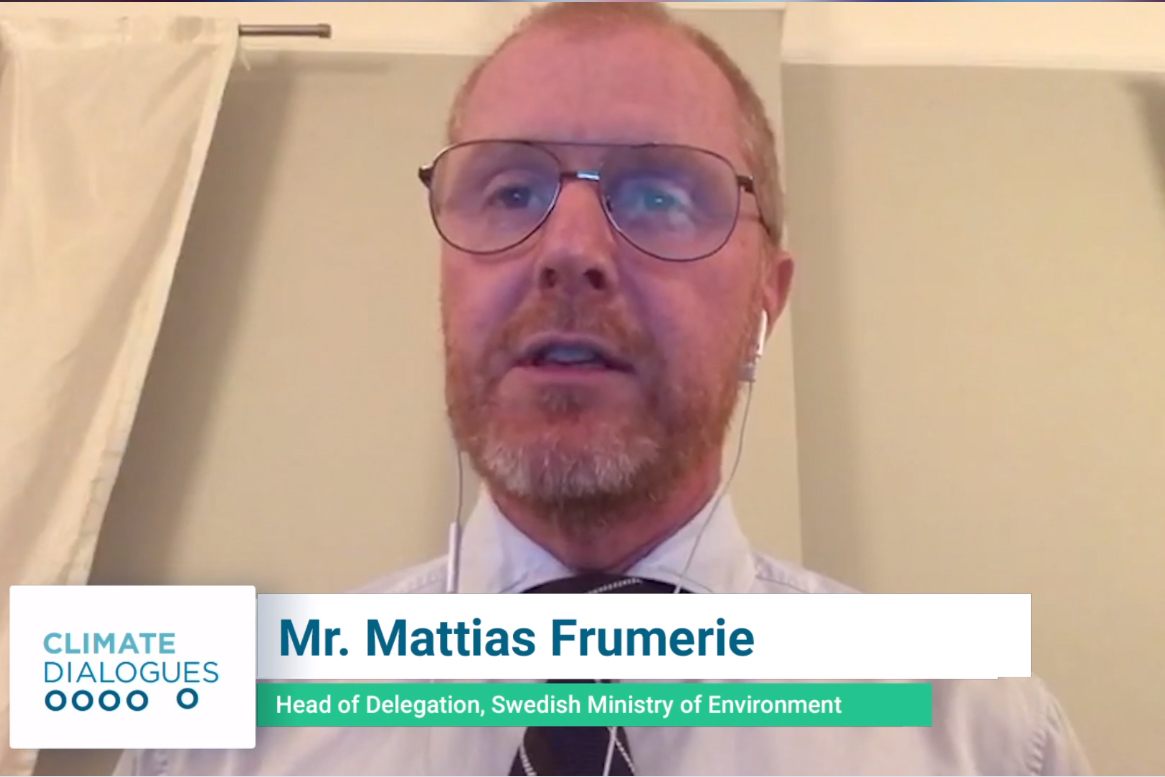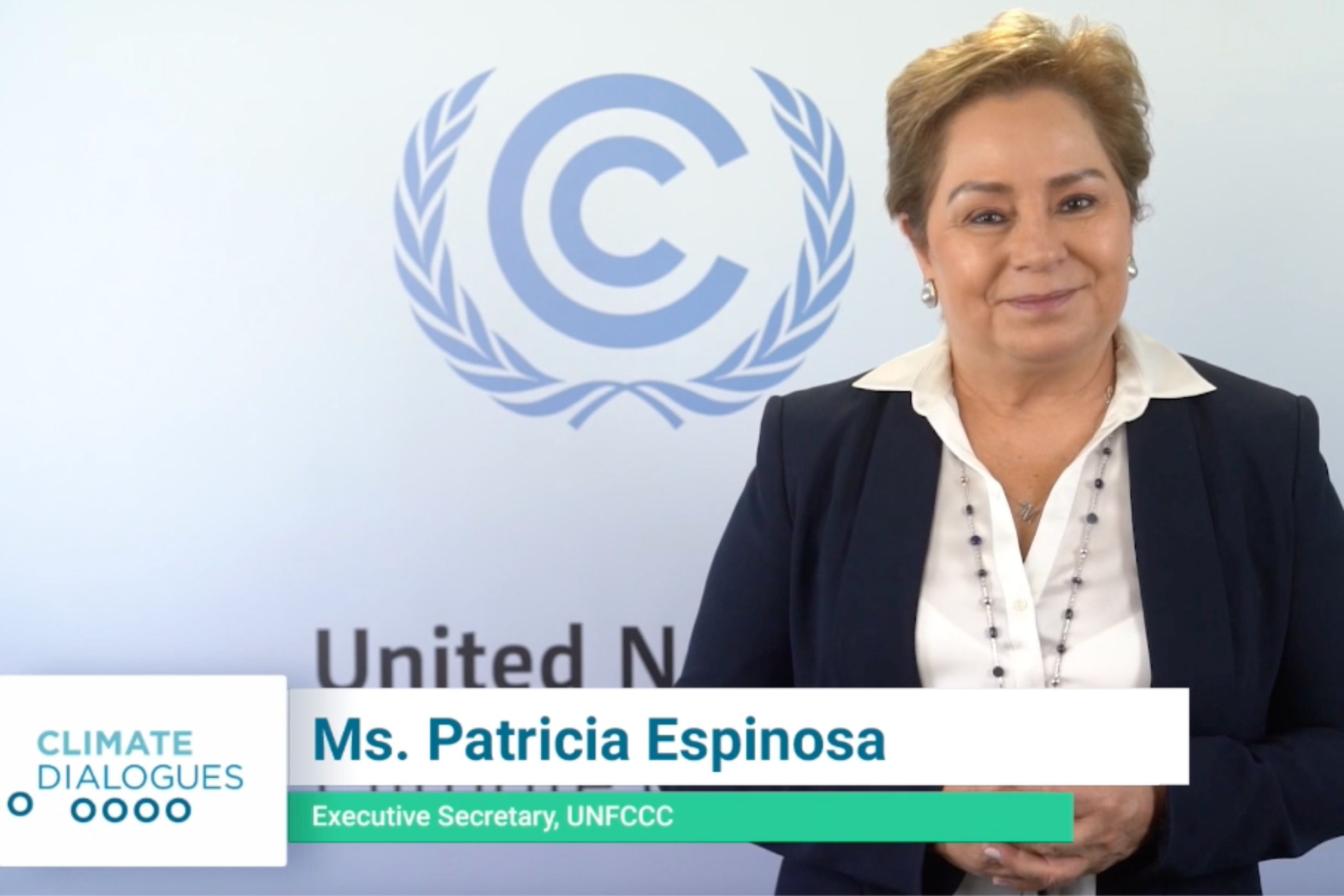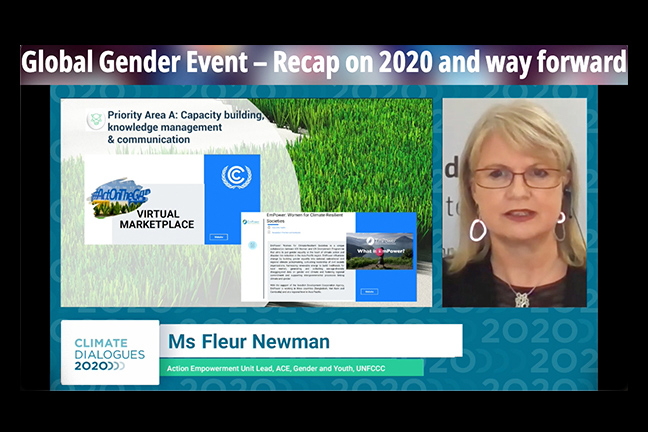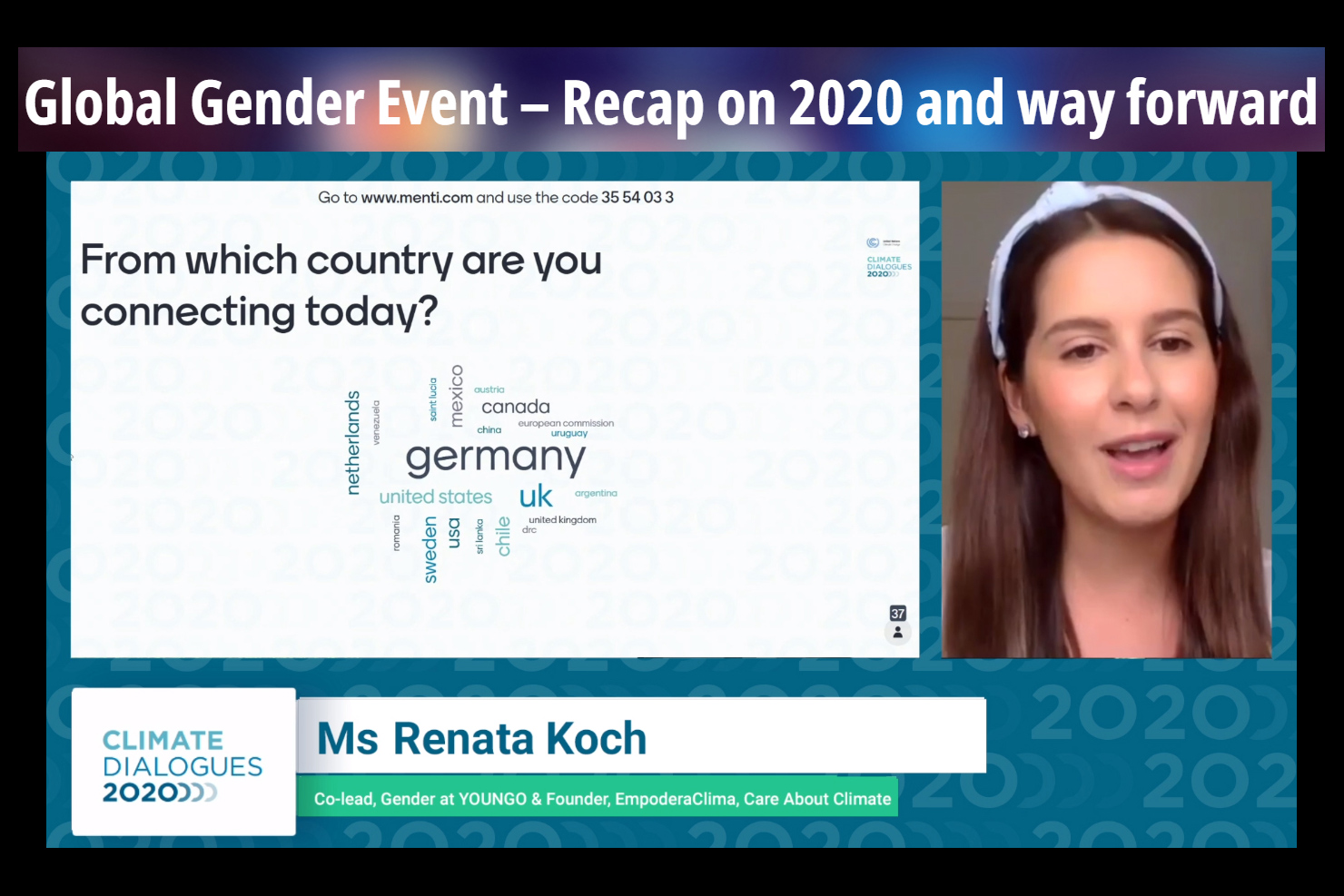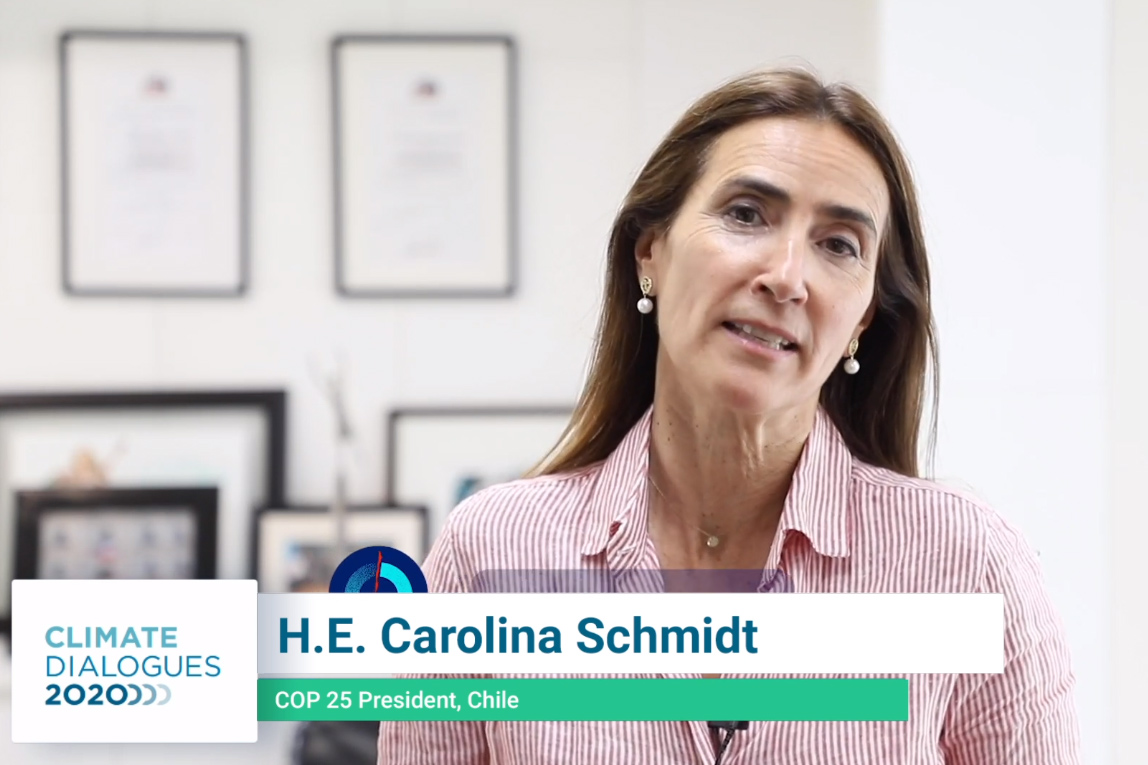UN Climate Change Dialogues 2020
23 November - 4 December 2020 | Online
Highlights for Thursday, 26 November 2020
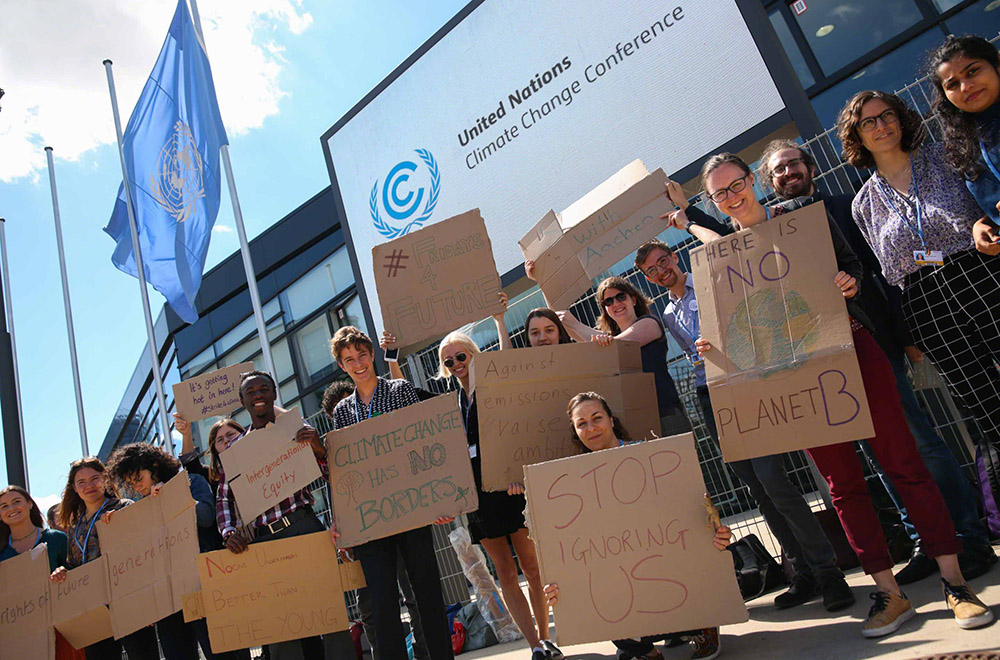
The fourth day of the Climate Dialogues considered the Long-Term Global Goal (LTGG), biodiversity and climate change adaptation, transparency, and gender, among other topics.
Closed events focused on: common tabular formats for reporting on progress made in implementing and achieving nationally determined contributions, Article 6.4 of the Paris Agreement (mechanism to contribute to the mitigation of greenhouse gases and support sustainable development), and financial and administrative matters.
First meeting of the structured expert dialogue of the second periodic review
During the first day of the first meeting of the structured expert dialogue (SED), participants heard from various authors of the Intergovernmental Panel on Climate Change (IPCC) working groups (WGs) on the latest scientific knowledge relevant to the LTGG of holding global average temperature change to well below 2°C above pre-industrial levels, and pursuing efforts to limit the increase to 1.5°C.
Insights included:
- parts of the world are already experiencing higher temperatures than the LTGG;
- to meet the LTGG, humanity must rapidly reduce emissions to net-zero CO2, and deeply reduce non-CO2 greenhouse gases (GHGs);
- while some “overshoot” scenarios exist, whereby the LTGG is exceeded and CO2 is subsequently removed from the atmosphere, the impacts of overshoot will potentially take centuries to reverse;
- reliance on carbon dioxide removal (CDR) is more pronounced the more emissions reductions are delayed, and relying on CDR may negatively affect sustainable development and land use; and
- for both land and ocean systems, the impacts and risks of climate change are disproportionately borne by the most vulnerable, who have contributed least to GHG emissions.
Questions and comments from participants considered, among others, the importance of climate literacy and the critical importance of reducing emissions in the next ten years.
Addressing knowledge gaps - Biodiversity and climate change adaptation
Tosi Mpanu-Mpanu, Chair of the Subsidiary Body for Scientific and Technological Advice (SBSTA), noted the Nairobi work programme (NWP) is the UNFCCC’s knowledge-to-action hub on adaptation and resilience, and highlighted that its engagement with adaptation and biodiversity experts has strengthened knowledge on nature-based solutions (NbS).
In a keynote presentation, Veronica Lo, NWP Expert Consultant, provided examples for technical, social and institutional, hybrid, and ecosystem-based adaptation options. She emphasized combining strategies to maximize effectiveness, noting the use of vegetated buffer zones to increase the longevity of seawalls as an example. Looking forward, she highlighted: gathering evidence on hybrid options and NbS; safeguards to ensure the rights of Indigenous peoples; and considering trade-offs, such as benefits from NbS being unevenly distributed among stakeholders.
In discussions, Balkisou Buba, Network of Indigenous and Local Communities for the Sustainable Management of Forest Ecosystems in Central Africa, highlighted the challenges of overcoming the view, held by many, that traditional knowledge is “primitive” and cannot produce effects at scale. Houria Djoudi, Center for International Forestry Research, emphasized biodiversity as a safety net for the most vulnerable in times of crises, pointing to Sahelian women’s increased reliance on forest products during the COVID-19 pandemic. Ali Raza Rizvi, International Union for Conservation of Nature, called for greater coherence between global targets. Participants also highlighted the need not to “oversell” NbS.
In closing remarks, Andrés Landerretche Moreno, for the COP 25 Presidency, emphasized that healthy ecosystems are critical to the objectives of all three Rio Conventions. Jonathan Stern, for the COP 26 Presidency, lauded the timeliness of the NWP’s work on forests’ contribution to adaptation, and pointed to the incoming Presidency’s campaigns on nature, and on adaptation and resilience.
Informal forum of the Consultative Group of Experts on the measurement, reporting, and verification, and the enhanced transparency framework
This session, moderated by Arif Goheer, Chair of the Consultative Group of Experts (CGE), focused on gathering feedback on the CGE’s work.
Jenny Mager, for the COP 25 Presidency, stressed the need to complete the CGE's terms of reference, and highlighted the importance of the CGE's work in providing technical advice and support on the implementation of the enhanced transparency framework (ETF).
Eve Deakin, for the COP 26 Presidency, said the transition to the ETF will raise new challenges for parties. She called for easier access to existing support, further capacity building and support, and a clearer understanding of how the ETF will be implemented.
CGE Chair Goheer described the CGE’s mandate; its vision, mission, and strategic priorities for 2020-2026; and its 2020 workplan. CGE members then presented on different aspects of the group’s work related to: knowledge products; knowledge delivery activities; engagement with parties and peer exchange; and needs assessment.
Many points were raised in the discussion sessions, including: the need for additional trainings and case studies, as well as more guidance on differences between biennial update report and biennial transparency report (BTR) guidelines; developing countries’ constraints related to data gaps and software; training in-country experts; and providing sector-specific trainings.
As key areas for the CGE’s work in 2021 and beyond, participants highlighted, among others: the preparation of BTRs; verification; quantifying mitigation benefits; and support for designing transformative climate policies.
In closing remarks, CGE Chair Goheer stressed that much work lies ahead to assist developing countries to improve their capacities to implement the existing measurement, reporting, and verification (MRV) arrangements and prepare for the ETF.
Achievements of the Technical Examination Processes
SBSTA Chair Mpanu-Mpanu recalled that the technical examination process (TEP), with its mitigation and later its adaptation components, consists of regular in-session thematic technical expert meetings complemented by regional technical expert meetings and is aimed at facilitating the sharing of good practices and lessons learned. He noted the process is scheduled to end in 2020.
Nigel Topping, UK High-Level Champion for Climate Action, emphasized the value of “radical models of collaboration” such as the TEP or the Race-to-Zero events held in November 2020, and noted the importance of addressing both mitigation and adaptation/resilience.
Speakers lauded the TEP, pointing to: its inclusiveness, noting it is a space for stakeholder empowerment and has demonstrated the value of expert-driven discussions; its regional activities; and its role in highlighting key issues and sectors, and in connecting experts and decision makers.
In closing remarks, Marianne Karlsen, Chair of the Subsidiary Body for Implementation (SBI), highlighted that the TEP shows that we have solutions available and noted that it provides an important platform for linking the “action space” with the formal negotiations. She expressed confidence that parties would find an appropriate way to recognize the TEP’s achievements at COP 26.
Global Gender Event – Recap on 2020 and way forward
This event reviewed efforts to implement the enhanced Lima Work Programme on Gender (LWPG) and its Gender Action Plan (GAP).
Patricia Espinosa, UNFCCC Executive Secretary, opened the event by applauding the efforts of those working on the LWPG. She expressed hope that the convergence of the climate crisis and a global health crisis has opened opportunities to “work forward” on gender-responsive climate action.
Fleur Newman, UNFCCC Secretariat, gave a high-level overview of the implementation of the LWPG and the GAP. She noted that 81 parties have already nominated at least one National Gender & Climate Change Focal Point (NGCCFP), and that work remains to be done on balancing gender composition in the Constitutive Bodies of the UNFCCC as well as in negotiations generally.
On regional workshops on the GAP, participants shared that major lessons learned included the need to focus on an intersectional perspective; the benefits of countries sharing information and capacity-building tools; and the need to generate sex-disaggregated data in climate policy and research.
Reflecting on their roles, NGCCFPs highlighted challenges, including: limited resources; insufficiently clear guidance on the role’s scope and responsibilities; working out how best to engage across multiple parts of a system; and building capacity in a flexible and adaptable way.
In closing remarks, Carolina Schmidt, COP 25 President, commended parties on nominating 29 national focal points in 2020.
Images from the Meeting
Videos from the Meeting
UNFCCC Resources
IISD/ENB Meeting Coverage
- High-level Roundtable on Climate Action, 24 September 2020, Online
- June Momentum for Climate Change, 1-10 June 2020, Online
- 52nd Session of the Intergovernmental Panel on Climate Change (IPCC-52), 24-28 February 2020, Headquarters of the UN Educational, Scientific and Cultural Organization (UNESCO), Paris, France
- Chile/Madrid Climate Change Conference, 2-15 December 2019, Madrid, Spain
- ENB Coverage of Climate Change Meetings
IISD Resources
- Subscription Page for ENB Update, SDG Update, and Peer-to-Peer Community Mailing Lists (including Climate News, SDG News, Biodiversity News, Ocean News, Forests News, Trade and Sustainable Development News, and Regional Updates)
- SDG Update Newsletter - A compilation of news, commentary and upcoming events published on the SDG Knowledge Hub
- SDG Knowledge Hub - An Online Resource Center for News and Commentary Regarding the Implementation of the United Nations’ 2030 Agenda for Sustainable Development, including all 17 Sustainable Development Goals (SDGs)

